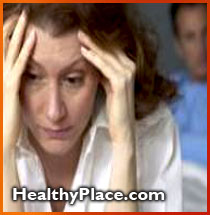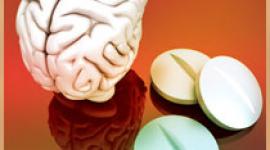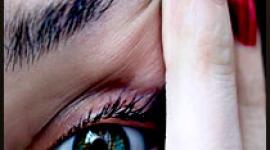Anxiety and Depression After A Heart Attack
Anxiety and depression after heart attack is normal
What Is This Feeling Of Depression About?
 Although better treatment and earlier rehabilitation programs help people recover swifter from a heart attack, adjusting to the psychological impact can take longer. Many survivors of a heart attack experience feelings of helplessness and depression.
Although better treatment and earlier rehabilitation programs help people recover swifter from a heart attack, adjusting to the psychological impact can take longer. Many survivors of a heart attack experience feelings of helplessness and depression.
The survivor and his or her family need to confront potential underlying fears and anxieties. Don't keep feelings bottled up inside. He or she should be encouraged to:
- Be patient. Feelings of fear, anxiety, depression, or anger are common after a heart attack and usually are temporary.
- Discuss feelings with his or her medical team, family, and friends.
- Keep a journal. Often, writing about feelings can help a heart attack victim feel better.
- Arrange for counseling if depression, anger, or withdrawal persists for more than four weeks. Their doctor can be helpful in arranging this.
Why do I feel anxious?
It is estimated that as many as 30% of patients report feeling anxious or depressed after a heart attack or heart surgery. You may feel depressed when you get back home, just when you're expecting to start feeling better. Your feelings may be due to a variety of reasons. You may be worried that you're going to have another heart attack, or you may have doubts about the success of your operation. These fears are a natural reaction to the stress of the event, they often resolve as time passes and should not cause you undue concern. It takes time for the implications of the condition to sink in, and the uncertainty of work prospects may worry both you and your partner.
How do I know if I'm depressed?
If you experience fatigue, tiredness, irritability, or you start to lose your temper easily, it may be a sign of depression. Your symptoms may vary from day to day. If you experience sexual difficulties after a heart attack, this may also cause anxiety. Returning to gentle sexual activity around three to four weeks after a heart attack or surgery is usually quite safe provided you've made a good recovery. There may be loss of libido or impotence for men, which may be due to anxiety or depression, the chest discomfort after surgery, or else due to certain medications such as beta-blockers or diuretics. If you think your medication may be affecting you in this way, it can be worth asking your doctor about changing it.
What can I do?
Making friends and family aware of possible problems can help their understanding of your situation. It can also be reassuring for you and your family to know that problems are usually temporary.
You may like to join a cardiac support group as it can be useful to share your concerns with people who have been through the same experience. Contact the American Heart Association chapter in your community.
Rehabilitation programs are another option. They provide information on healthy eating and managing risk factors for coronary heart disease, they also run exercise programs. Also available are counseling and stress relieving activities for people who have had heart attacks or heart surgery. You will usually be contacted by a rehabilitation nurse before you leave hospital. If you find it difficult to attend a rehabilitation program, you may be offered a self-help Heart Manual from your local hospital to use at home. It is important to discuss any problems with your doctor as he or she may be able to help you resolve your anxieties. If your anxiety or depression becomes severe, and there is no sign of improvement, you may need treatment from your doctor or a professional counselor or therapist
Sources:
- National Heart, Lung and Blood Institute, "Life After a Heart Attack"
- American Heart Association
next: Anxiety Disorders Research at the National Institute of Mental Health
~ anxiety-panic library articles
~ all anxiety disorders articles
APA Reference
Tracy, N.
(2007, February 18). Anxiety and Depression After A Heart Attack, HealthyPlace. Retrieved
on 2026, February 28 from https://www.healthyplace.com/anxiety-panic/articles/anxiety-and-depression-after-a-heart-attack



